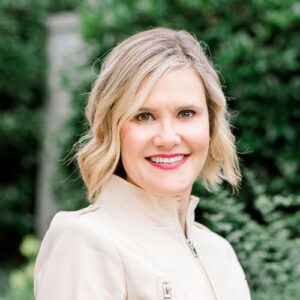Charters Are the Most Popular Form of School Choice. Democrats Must Get on Board
Bultan & Parent: Dems should push for open, equitable and public school choice options that are the best choice for lawmakers, parents and students.

Get stories like this delivered straight to your inbox. Sign up for The 74 Newsletter
As students across the country return to their classrooms, parents clearly support having options for which school their children will attend. Will they attend a traditional public school? A magnet school for science? Perhaps a public charter school in their neighborhood? These choices are good for children, good for parents and good for communities.
Yet many lawmakers, particularly Republicans, are using “school choice” language to siphon financial support away from public schools, both traditional and charter, and funnel it to parents who want taxpayer-funded subsidies for children who are already attending private schools. A budget approved by the North Carolina legislature this month will fund the second-largest private school voucher program in the country, with the state becoming the 10th to “offer taxpayer-funded universal school choice to attend private schools.”
The voucher-based version of school choice that many states are pursuing sends state resources to those who need it least and ignores the type of choice Americans overwhelmingly favor.
A recent report from the nonpartisan Center on Budget and Policy Priorities states that “voucher programs often benefit those students already enrolled in private school.” It points to studies in states such as Arizona, New Hampshire, Louisiana and Missouri showing that most voucher recipients either already attended private school or were homeschooled. Meanwhile, the barriers to entry to private schools means they remain out of reach for most low-income and middle-income families. The National Center for Learning Disabilities found that, “on average, even with a voucher or tax incentive, parents still have to spend thousands of dollars to send their child to a private school.”
These voucher programs rarely help low-income families in the way magnet schools or increased funding for traditional public schools would. We’re proud that Georgia rejected private school voucher legislation this year. Democrats joined with rural Republicans to protect publicly funded schools from the cuts that would have come with a voucher program.Don’t misconstrue our message — there is nothing wrong with parents who have the means sending their children to private schools. Yet, lawmakers in Florida, Iowa, Arkansas and Utah, in addition to North Carolina, all recently passed choice bills focused on sending public tax dollars to private schools at the expense of public schools — even though private schools are not held to the same standards as public schools under the law. Policymakers should follow the example of Georgia, not Florida, because the latter is not the school choice most families want.
Just because the GOP-backed voucher system is unfair does not mean Democrats should abandon discussion around school choice. Rather, Democrats must recognize that no choice is not an option either. For the past several decades, the American public has debated the issue of school choice, hashing out the issue in red and blue states alike.
At a recent meeting of state and local elected officials organized by NewDEAL Leaders, Democrats for Education Reform presented polling showing more than 70% of Democratic and Republican voters have a favorable opinion of “nonprofit public charter schools.” In fact, the favorability is 72% among Democrats and 70% among Republicans, while just 18% of both groups view the schools unfavorably. The option is especially popular among communities of color. When asked whether they viewed charter schools favorably or unfavorably, 80% of Black parents and 71% of Hispanic parents responded with a favorable opinion.
After years of experimentation, it is clear parents want the option of sending their child to a magnet or charter school. These are free, accountable to taxpayers and open to every child. They provide additional options beyond traditional public schools but must adhere to state education standards.
In the same DFER poll, voters preferred public school choice over private vouchers 62% to 38% margin.
At the same time, parents don’t want to abandon investment in traditional public schools. They want high-quality teachers working in well-funded public school classrooms, filled with the equipment and resources needed to prepare the next generation to reach their full potential.
At a time when the Republican education agenda consists of vouchers and efforts like extremist book bans that fan the flames of culture wars, DFER polling still shows Democrats losing ground when voters are asked which party they trust more on education. Embracing public school choice can help remind parents, and all voters, why the party should be trusted on this issue.
Education has the potential to be the great equalizer in this nation. While nothing is a silver bullet for all of society’s woes, high-quality K-12 education can be the springboard to opportunity and social mobility, including access to the postsecondary degrees and certifications that are critical to success in today’s economy.
Real school choice, including traditional public schools, public charter schools, language-immersion schools and magnet schools, can ensure that parents have the chance to select the best options for their kids without seeing taxpayer money diverted to private schools that are not accountable for how they prepare their students.
As they did in Georgia, leaders around the nation can come together and demand the best possible education for students.
Democrats should push for open, equitable and public school choice options. This is the best choice for lawmakers, parents and, most importantly, students.
Get stories like these delivered straight to your inbox. Sign up for The 74 Newsletter

;)

